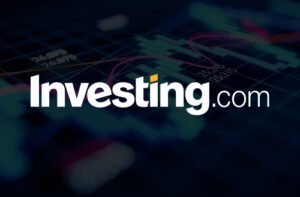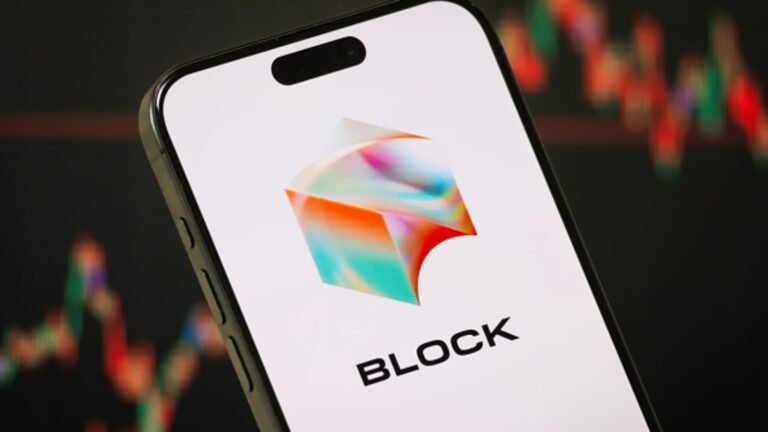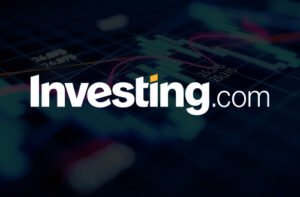When considering personal loans, consumers are often presented with numerous options. Two notable lenders in the personal loan space are Upstart Powered Loans and Sun Loan Company, both offering different terms, loan amounts, and eligibility requirements. However, it’s crucial to consider alternatives in the market, which may offer better interest rates, more flexible terms, and an overall more user-friendly experience.
In this article, we’ll compare and contrast these two lenders while also offering a comprehensive overview of the best alternatives available, such as LendingClub, Prosper, Marcus by Goldman Sachs, SoFi, and Best Egg. Each of these alternatives has unique features that could be better suited for your specific financial needs, whether you’re seeking debt consolidation, home improvement loans, or personal loans for emergencies.
1. Upstart Powered Loans
Overview:
Upstart is a lending platform that uses artificial intelligence and machine learning to assess borrowers. Unlike traditional lending institutions that rely primarily on credit scores, Upstart uses additional factors such as education, employment history, and income to determine eligibility and loan terms. This model makes Upstart a suitable option for individuals with less-than-perfect credit or those who are relatively new to credit.
Loan Features:
- Loan Amounts: Upstart offers personal loans ranging from $1,000 to $50,000, depending on the borrower’s eligibility.
- Repayment Terms: The repayment terms typically range from 36 to 60 months.
- Interest Rates: Rates range from 5.4% to 35.99% APR, which can be relatively high for borrowers with poor credit.
- Eligibility Requirements: Upstart’s algorithm considers more than just credit scores, so even borrowers with low credit scores might qualify. However, a minimum credit score of around 600 is generally required.
- Fees: Upstart charges an origination fee, which typically ranges from 0% to 8%, depending on the loan.
Pros:
- Innovative Underwriting Process: Uses AI to approve loans, providing more options for borrowers with unconventional credit histories.
- Quick Approval: Loan applications are processed quickly, with funds available in your account within one business day.
- Flexible Use of Funds: Loans can be used for a variety of purposes, including debt consolidation, education expenses, and emergency situations.
Cons:
- Higher Interest Rates for Poor Credit: While Upstart can help those with lower credit scores, the interest rates may be quite high.
- Origination Fees: Borrowers may face origination fees, which could increase the cost of the loan.
- Limited Loan Term Options: Repayment terms are often limited to 36 to 60 months, which may not be flexible enough for some borrowers.
2. Sun Loan Company
Overview:
Sun Loan Company is a more traditional lender with a physical presence in multiple states. They offer personal loans designed to meet the needs of individuals who may have trouble qualifying for credit with traditional banks or other lenders. The company specializes in offering small-dollar loans to people who need immediate cash.
Loan Features:
- Loan Amounts: Sun Loan typically offers loans ranging from $100 to $3,000, which makes it ideal for smaller financial needs.
- Repayment Terms: Loan repayment terms range from a few weeks to several months, typically 12 to 36 months.
- Interest Rates: Rates can vary significantly, but they tend to be higher than those offered by online lenders or peer-to-peer platforms, sometimes exceeding 30% APR.
- Eligibility Requirements: Sun Loan is known for its more lenient eligibility requirements. Borrowers with poor or no credit may still be able to qualify, although rates and fees might be high.
- Fees: Sun Loan charges fees for processing and origination, which can further increase the cost of borrowing.
Pros:
- Lenient Eligibility: Sun Loan is often a go-to option for people with low credit scores or no credit history.
- Quick Access to Funds: Since Sun Loan operates in physical locations, borrowers can often get access to cash quickly, especially if they visit a branch in person.
- Personalized Service: With physical locations, borrowers can expect personalized customer service to help navigate the loan process.
Cons:
- High-Interest Rates: Due to its focus on higher-risk borrowers, Sun Loan often imposes steep interest rates, making loans more expensive in the long run.
- Small Loan Amounts: While Sun Loan is a good option for smaller needs, those who require larger loans for home repairs or debt consolidation may need to look elsewhere.
- Limited Availability: Sun Loan operates in a limited number of states, so its accessibility is restricted.
Best Alternatives to Upstart Powered Loans and Sun Loan Company
If you’re considering alternatives to Upstart Powered Loans and Sun Loan Company, several other lenders in the market provide better terms, rates, and a broader range of loan options. Below are five top alternatives to consider:
3. LendingClub
Overview:
LendingClub is one of the largest peer-to-peer lending platforms in the U.S., offering personal loans directly funded by investors. The platform connects borrowers with investors who fund the loans, offering flexible terms and competitive rates. LendingClub is particularly popular for those seeking debt consolidation loans, but it can also be used for personal loans, home improvement, and other purposes.
Loan Features:
- Loan Amounts: LendingClub offers personal loans from $1,000 to $40,000.
- Repayment Terms: Loan terms range from 36 to 60 months.
- Interest Rates: Rates typically range from 6.34% to 35.89% APR, depending on the borrower’s creditworthiness.
- Eligibility Requirements: Borrowers with credit scores as low as 600 may qualify, but the best rates go to those with higher credit scores.
- Fees: LendingClub charges origination fees, which range from 1% to 6% of the loan amount.
Pros:
- Peer-to-Peer Model: Offers a more personalized lending experience and often better rates than traditional banks.
- Competitive Interest Rates: Borrowers with good credit can access low rates.
- Wide Range of Loan Amounts: LendingClub offers a broad range of loan amounts, making it suitable for various needs.
Cons:
- Origination Fees: The origination fee can be expensive for larger loans.
- Higher Rates for Lower Credit Scores: Borrowers with lower credit scores may face higher rates, similar to Upstart.
- Longer Approval Process: Although faster than traditional banks, the approval process may be slower compared to lenders like Upstart.
4. Prosper
Overview:
Like LendingClub, Prosper is another popular peer-to-peer lending platform. Prosper offers personal loans for a variety of purposes, including debt consolidation, home improvements, and medical expenses. The platform is known for its transparency and straightforward fee structure.
Loan Features:
- Loan Amounts: Prosper offers personal loans ranging from $2,000 to $40,000.
- Repayment Terms: Loan terms range from 36 to 60 months.
- Interest Rates: Rates range from 7.95% to 35.99% APR, depending on your credit score and financial profile.
- Eligibility Requirements: Borrowers generally need a credit score of at least 640 to qualify for Prosper loans.
- Fees: Prosper charges an origination fee that ranges from 2.4% to 5% of the loan amount.
Pros:
- Competitive Rates: Prosper offers competitive rates, especially for borrowers with good credit.
- No Prepayment Fees: You can pay off your loan early without incurring extra charges.
- Simple Application Process: Prosper’s online application is user-friendly and fast.
Cons:
- Fees for Lower Credit Borrowers: Borrowers with lower credit scores may face higher fees and rates.
- Loan Approval Time: Approval and funding can take several days, though it’s still quicker than traditional banks.
5. Marcus by Goldman Sachs
Overview:
Marcus by Goldman Sachs is an online-only bank that offers personal loans with no fees. Marcus is known for providing straightforward terms and low-interest rates, making it a top choice for individuals with good to excellent credit.
Loan Features:
- Loan Amounts: Marcus offers loans between $3,500 and $40,000.
- Repayment Terms: Loan terms range from 36 to 72 months.
- Interest Rates: Rates range from 6.99% to 24.99% APR.
- Eligibility Requirements: You’ll need a good credit score (usually 660 or higher) to qualify.
- Fees: There are no origination fees, late fees, or prepayment penalties.
Pros:
- No Fees: Marcus stands out for offering no fees, which makes it a more affordable option in the long run.
- Low-Interest Rates: With good credit, borrowers can access very competitive interest rates.
- Customer Support: Marcus is known for offering excellent customer service.
Cons:
- Good Credit Required: Marcus only offers the best terms to borrowers with good or excellent credit.
- Limited Loan Amount: While Marcus is ideal for mid-range loans, borrowers needing more than $40,000 may need to explore other options.
6. SoFi
Overview:
SoFi is an online lender that offers personal loans with competitive interest rates and no fees. SoFi’s standout feature is its comprehensive suite of financial services, including career coaching, investment management, and financial planning, making it a great option for individuals looking for more than just a loan.
Loan Features:
- Loan Amounts: SoFi offers loans ranging from $5,000 to $100,000.
- Repayment Terms: Loan terms range from 36 to 84 months.
- Interest Rates: Rates range from 5.99% to 18.85% APR, depending on creditworthiness.
- Eligibility Requirements: SoFi typically requires a credit score of at least 680 and a solid income.
- Fees: SoFi charges no fees whatsoever, including no origination or prepayment fees.
Pros:
- No Fees: SoFi charges no fees for loans, making it an attractive option for borrowers.
- Large Loan Amounts: SoFi offers personal loans for large amounts, making it ideal for major financial needs like home improvement or large medical expenses.
- Additional Benefits: SoFi provides free financial planning and career advice to its customers.
Cons:
- Requires Good Credit: SoFi requires borrowers to have good credit to qualify for the best rates.
- Available Only in Some States: Not all borrowers can access SoFi loans, as availability is limited to certain states.
7. Best Egg
Overview:
Best Egg is a popular online lender offering personal loans with competitive rates. The company is known for its fast loan approval process and quick funding.
Loan Features:
- Loan Amounts: Best Egg offers loans ranging from $2,000 to $50,000.
- Repayment Terms: Loan terms range from 36 to 60 months.
- Interest Rates: Rates range from 5.99% to 29.99% APR.
- Eligibility Requirements: Borrowers need a credit score of at least 640 to qualify.
- Fees: Best Egg charges an origination fee ranging from 0.99% to 5.99%.
Pros:
- Fast Approval Process: Best Egg is known for quick approval and funding.
- Flexible Loan Terms: Borrowers can choose loan terms that work best for their budget.
- Competitive Rates: Best Egg offers competitive rates for borrowers with good credit.
Cons:
- Origination Fees: Best Egg charges origination fees, which may increase the overall cost of the loan.
- Higher Rates for Lower Credit: Borrowers with lower credit scores may face high-interest rates.
Conclusion: Which Lender is Right for You?
When choosing a lender for your personal loan, it’s crucial to evaluate your needs, credit score, and the total cost of borrowing. While Upstart and Sun Loan Company are popular choices, their fees, interest rates, and eligibility requirements may not always provide the best deal for everyone. LendingClub, Prosper, Marcus by Goldman Sachs, SoFi, and Best Egg offer competitive alternatives with more favorable terms, especially if you have good to excellent credit. Each lender has unique features, so it’s important to shop around and compare before committing to a loan.
Frequently Asked Questions (FAQ) – Best Alternatives to Upstart Powered Loans vs. Sun Loan Company
When considering personal loans, it’s natural to have many questions. Here, we address some of the most frequently asked questions about alternatives to Upstart Powered Loans and Sun Loan Company. These answers will help you understand the options available and how to choose the best lender based on your financial situation.
1. What are the main differences between Upstart and Sun Loan Company?
Upstart is an online platform that uses artificial intelligence to assess loan applicants. It provides loans to those with less-than-perfect credit, using factors such as education, income, and employment history. Upstart is known for offering relatively higher loan amounts and flexible terms, but it can have higher interest rates for people with lower credit scores.
Sun Loan Company, on the other hand, is a traditional, in-person lender that specializes in small, short-term loans. It is an option for borrowers who may not qualify with other lenders. The loan amounts are typically smaller, but it can be a good choice for those who need quick access to cash. However, the interest rates tend to be high, and the loans are usually short-term.
2. What are the alternatives to Upstart Powered Loans and Sun Loan Company?
Several alternatives provide personal loans with competitive interest rates and better terms than Upstart and Sun Loan Company. Some top alternatives include:
- LendingClub: A peer-to-peer lending platform offering personal loans ranging from $1,000 to $40,000 with terms of 36 to 60 months.
- Prosper: Similar to LendingClub, Prosper offers personal loans from $2,000 to $40,000 with competitive rates and flexible terms.
- Marcus by Goldman Sachs: This lender offers no-fee personal loans with loan amounts ranging from $3,500 to $40,000.
- SoFi: An online lender offering larger loan amounts, from $5,000 to $100,000, with no fees and a range of loan terms.
- Best Egg: Known for fast approval and funding, Best Egg offers loans between $2,000 and $50,000 with competitive rates.
Each of these options has specific strengths, depending on your needs.
3. How do I know if I qualify for a personal loan with one of these alternatives?
Each lender has different eligibility requirements, but generally, they will look at:
- Credit Score: Most lenders require a minimum credit score, typically around 600-640, although some may have higher thresholds.
- Income and Employment History: Lenders want to ensure that you can repay the loan. They may look at your employment history and monthly income.
- Debt-to-Income Ratio: Some lenders will evaluate your debt-to-income ratio (the percentage of your monthly income that goes toward paying off debts).
- Additional Criteria: Platforms like Upstart and Prosper may also look at factors beyond just credit scores, such as your education or financial background.
Be sure to review the specific lender’s eligibility criteria on their website or contact their customer service for more details.
4. What are the advantages of peer-to-peer lending platforms like LendingClub and Prosper?
Peer-to-peer lending platforms like LendingClub and Prosper connect borrowers directly with investors. These platforms tend to offer several benefits:
- Competitive Interest Rates: Since the loans are funded by individual investors, the interest rates can sometimes be lower than traditional banks or lenders.
- Flexibility: They offer loans for various purposes, such as debt consolidation, home improvement, or personal expenses.
- Variety of Loan Amounts: These platforms offer a wide range of loan amounts, typically between $1,000 and $40,000, making them ideal for different financial needs.
However, note that these platforms may also have fees, such as origination fees, which can affect the overall loan cost.
5. How does Marcus by Goldman Sachs compare to Upstart and Sun Loan Company?
Marcus by Goldman Sachs stands out because it offers no-fee loans with competitive interest rates and longer repayment terms (up to 72 months). It’s best suited for those with good to excellent credit and those who want to avoid fees. In contrast, Upstart and Sun Loan Company may charge origination fees, and Sun Loan, in particular, has higher rates and shorter loan terms.
Key Advantages of Marcus:
- No fees (no origination, prepayment, or late fees).
- Flexible loan amounts: $3,500 to $40,000.
- Low-interest rates: Best for borrowers with good credit.
Disadvantages of Marcus:
- Requires good credit to qualify for the best rates.
- Available only for personal loans (no business loans).
6. What types of loans are best for debt consolidation?
If you’re looking for a loan to consolidate debt, lenders like LendingClub, Prosper, Best Egg, and Marcus are great options. These lenders offer personal loans that allow you to consolidate high-interest credit card debt or other loans into a single loan with a lower interest rate.
When selecting a lender for debt consolidation, you should:
- Compare interest rates.
- Ensure the loan terms are favorable, meaning you can comfortably repay it without adding new debt.
- Look for no-fee loans, as fees can eat into your savings.
7. Are there any hidden fees I should be aware of?
Most reputable online lenders like Marcus by Goldman Sachs, SoFi, and Prosper are transparent about their fees. However, some lenders may charge:
- Origination Fees: Some lenders charge fees for processing the loan, which can range from 1% to 6% of the loan amount.
- Late Payment Fees: If you miss a payment, you may be charged a fee.
- Prepayment Fees: While uncommon, some lenders may charge a fee for paying off your loan early, which can be a disadvantage if you want to pay off your loan faster.
Always read the loan agreement carefully to understand all potential fees before signing.
8. How long does it take to get a personal loan from these alternatives?
The approval and funding process can vary depending on the lender, but here’s a general breakdown:
- Upstart: Often offers fast approvals, with funding available in 1 business day.
- LendingClub: Approval can take several days, and funds are typically available within 7 business days.
- Marcus by Goldman Sachs: The application process is relatively quick, and you could receive funds within 1 to 4 business days.
- SoFi: Offers quick approvals, and funding typically happens within 7 business days.
- Best Egg: Known for quick approval and funding, you could receive funds in 1 to 3 business days.
9. Can I apply for a loan with a low credit score?
Yes, many alternative lenders like Upstart and Sun Loan Company are designed for people with lower credit scores. Upstart uses alternative factors, such as education and employment history, which can help you qualify even with a lower score. Sun Loan specializes in lending to people with poor credit or no credit.
However, if you have a low credit score, you should expect higher interest rates or additional fees. To secure a better rate, consider improving your credit score before applying.
10. How do I compare interest rates between different lenders?
To compare interest rates, consider these steps:
- Check APR (Annual Percentage Rate): The APR includes both the interest rate and any fees, so it gives you a clear picture of the total cost of the loan.
- Compare Loan Terms: Ensure that the repayment term aligns with your ability to repay without stretching your budget.
- Consider Fees: Look at any additional fees (e.g., origination fees) that could affect the overall cost of the loan.
Read More:
- OneMain Financial vs. Finznest: Which is the Better Option for You?
- Can I Reduce My Home Loan Interest Rate in Texas? 2025
- Can I Get a Personal Loan While on Workers’ Comp in Massachusetts?
- How Soon Can You Refinance a Motorcycle Loan? A Complete Guide
- Is There a Prepayment Penalty on Car Loans in Georgia? – 2025










